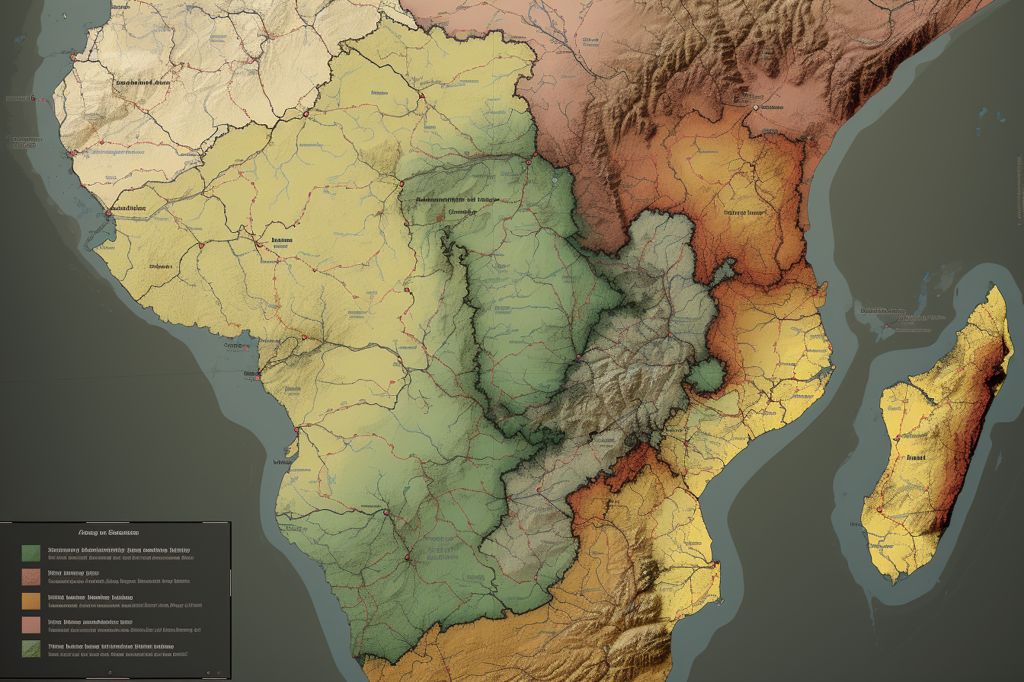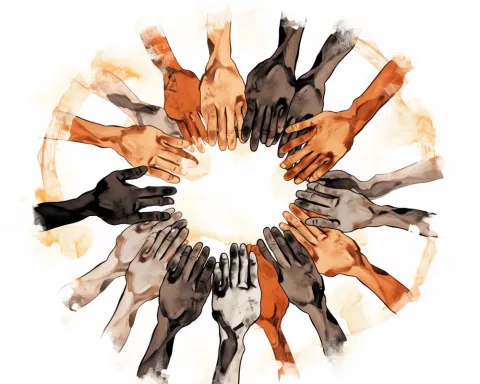South Africa’s Electoral Commission is working to fortify democracy by ensuring just and effective elections for the 2024 National and Provincial Elections. The Commission has revised voting district boundaries, resulting in an increase of 148 districts to enhance voter access and convenience. The Commission has launched a Targeted Communication and Re-registration campaign to connect with affected voters and enable on-the-spot re-registration. The creation and maintenance of voting districts are essential for reducing electoral fraud and boosting efficiency. The Commission’s efforts are crucial for nurturing South Africa’s democracy, and it is critical for eligible citizens to engage in this democratic exercise.
The Electoral Commission’s Mission for 2024
South Africa’s Electoral Commission holds a critical position in upholding democratic progress by ensuring just and effective elections. With the forthcoming 2024 National and Provincial Elections, the Commission has recently completed a revision of voting district boundaries to enhance voter access and convenience, consequently fortifying the democratic process. This article will examine the details of the Electoral Commission’s work, discuss the consequences of the modifications, and emphasize the significance of voter registration.
The re-delineation process has resulted in the formation of 23,296 voting districts, a growth of 148 from the previous 23,148 during the 2021 Municipal Elections. Voting districts serve as an administrative instrument for the Commission’s planning endeavors rather than political boundaries. Chief Electoral Officer Sy Mamabolo highlights the value of the increase in voting districts: “This increase, however slight, implies increased access and convenience to voting for voters.”
Due to the updated voting district boundaries, the Electoral Commission has launched a Targeted Communication and Re-registration (TCR) campaign. Taking place from October 2 to October 27, 2023, this campaign centers on re-registering voters impacted by the alterations. It primarily targets 1,925 affected voting districts, with the majority located in KwaZulu-Natal, the Eastern Cape, and Limpopo province.
Reaching Out to Voters and Registration Efforts
The TCR campaign employs various tactics to connect with affected voters, including fieldworkers going door-to-door and direct messaging via SMS and other digital platforms. Fieldworkers, easily recognizable by their identification cards and IEC-branded vests, come equipped with voter management devices (VMDs) to expedite on-the-spot re-registration. In addition, the Electoral Commission’s Voter Portal enables voters to verify their registration status and, if needed, re-register online 24/7. This is crucial, as the law requires eligible voters to be registered in the voting district where they typically reside to take part in elections.
The first registration weekend for the 2024 Elections is planned for November 18-19, 2023, with voting stations operational from 8 am to 5 pm on both days. It is essential for South African citizens to be aware of their voting district and registration status to guarantee a seamless and effective electoral process.
The Creation and Maintenance of Voting Districts
Digging further into the Electoral Commission’s operations, its Delimitation Division is tasked with dividing South Africa into voting districts using a Geographical Information System (GIS) electronic mapping system. Voting districts are indispensable for election planning and administration, reducing electoral fraud, and boosting efficiency. Each voting district is serviced by a single voting station, and voters may only register and vote in the district in which they reside. This minimizes the likelihood of voting multiple times in an election.
Voting districts are established based on geographical size and the number of eligible voters, with the main objective being to reduce voter inconvenience and assist logistical planning. Urban voting districts typically include 3,000 voters within a smaller radius around the voting station, while rural districts accommodate around 1,200 voters within a comparatively larger radius.
Changes in the shape of voting districts between elections are not unusual due to various geographical, population, and political factors. The Commission accesses multiple data sources, such as topographic, cadastral, and census information, and consults with the Surveyor-General, the Department of Land Affairs, and Statistics SA to align voting districts with local changes. Moreover, voting stations within each district are confirmed in collaboration with municipal political representatives.
In summary, the Electoral Commission’s relentless work to streamline the electoral process and improve voter access is crucial for nurturing South Africa’s democracy. This year, the TCR campaign and the revision of voting district boundaries demonstrate the Commission’s dedication to ensuring a just and effective 2024 National and Provincial Elections. As the first registration weekend rapidly approaches, it is critical for all eligible South African citizens to stay informed, verify their registration status, and actively engage in this democratic exercise.
1. What is the Electoral Commission’s mission for the 2024 National and Provincial Elections?
The Electoral Commission’s mission is to ensure just and effective elections by revising voting district boundaries to enhance voter access and convenience.
2. How many new voting districts were created as a result of the revision process?
148 new voting districts were created as a result of the revision process, bringing the total to 23,296 voting districts.
3. What is the Targeted Communication and Re-registration campaign?
The Targeted Communication and Re-registration campaign is a campaign launched by the Electoral Commission to re-register voters impacted by the updated voting district boundaries.
4. What are the tactics used in the TCR campaign to connect with affected voters?
The tactics used in the TCR campaign to connect with affected voters include fieldworkers going door-to-door, direct messaging via SMS and other digital platforms, and the Voter Portal.
5. When is the first registration weekend for the 2024 Elections?
The first registration weekend for the 2024 Elections is planned for November 18-19, 2023.
6. What is the purpose of voting districts?
Voting districts are used for election planning and administration, reducing electoral fraud, and boosting efficiency. Each voting district is serviced by a single voting station, and voters may only register and vote in the district in which they reside.
7. How are voting districts established?
Voting districts are established based on geographical size and the number of eligible voters, with the aim of reducing voter inconvenience and assisting logistical planning. Urban voting districts typically include 3,000 voters within a smaller radius around the voting station, while rural districts accommodate around 1,200 voters within a comparatively larger radius.
8. What sources of data are used to align voting districts with local changes?
The Electoral Commission accesses multiple data sources such as topographic, cadastral, and census information and consults with the Surveyor-General, the Department of Land Affairs, and Statistics SA to align voting districts with local changes.












